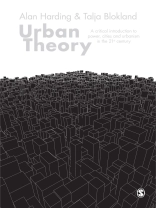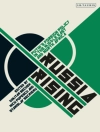What
is Urban Theory? How can it be used to understand our urban experiences? Experiences typically defined by enormous inequalities, not just
between cities but
within cities, in an increasingly interconnected and globalised world. This book explains:
- Relations between urban theory and modernity in key ideas of the Chicago School, spatial analysis, humanistic urban geography, and ‘radical′ approaches like Marxism
- Cities and the transition to informational economies, globalization, urban growth machine and urban regime theory, the city as an ‘actor’
- Spatial expressions of inequality and key ideas like segregation, ghettoization, suburbanization, gentrification
- Socio-cultural spatial expressions of difference and key concepts like gender, sexuality, race, ethnicity and ‘culturalist’ perspectives on identity, lifestyle, subculture
- How cities should be understood as intersections of horizontal and vertical – of coinciding resources, positions, locations, influencing how we make and understand urban experiences.
Urban Theory: A Critical Introduction to Power, Cities and Urbanism in the 21st Century provides the tools for any student of the city to understand, even to change, our own urban experiences.
Tabela de Conteúdo
1. WHAT IS URBAN THEORY?
Urban Studies and Urban Theory
What is Urban?
What is Theory?
And So What on Earth is Urban Theory?
2. URBAN THEORIES UNDER CONDITIONS OF MODERNITY
The Chicago School and Urban Ecology
Urban Geography and Spatial Analysis
The Community Power Debate
Humanistic (Urban) Geography
‘Radical′ Approaches
The Legacy of Previous Theories and Their Challenges
3. FROM THE URBAN CRISIS TO THE ‘TRIUMPH OF THE CITY’
Cities as Actors in a Globalising Economy
Urban Decline and Obsolescence
Urban Economic Renaissance
Discussion
4. CAN CITIES ACT? URBAN POLITICAL ECONOMY AND THE QUESTION OF AGENCY
The Rediscovery of Agency Within Urban Theory
Introducing American Urban Political Economy
Urban Regimes and Growth Machines
The Normative Dimension
Critiques and Applications
5. SPATIAL EXPRESSIONS OF INTRA-URBAN INEQUALITIES
Inequalities Versus Differentiations: Vertical and Horizontal Paradigms
Cities as Sites of Resources: Space and Inequalities
Segregation
Suburbanization
Gentrification
Ghettoization as a Spatial Process of Marginalization
Neighbourhood Effects: Spatial Profit and Disadvantage
6. SPATIAL EXPRESSION OF DIFFERENTIATION
The Cultural Turn
The City as a Realm of Community and Lifestyle
The Subcultural Thesis
The Representational City: Public Space
Cultural Diversity: Identities in Public Space
Conclusion: Cities as Matrix of Resources
7. URBAN THEORY RECONSIDERED
The ′Crisis′ in Urban Theory Revisited
The Performance of Theories
The Commensurability of Theories
Theory, Politics and Practice
A New Urban Agenda?
Sobre o autor
Talja Blokland (1971) is an urban sociologist who has worked at Yale University, the University of Manchester and various Dutch universities. Since 2009, she has held the chair of Urban and Regional Sociology at Humboldt University in Berlin. Her publications include Urban Bonds (Polity 2003), Networked Urbanism (edited with Mike Savage, Ashgate 2008) and various articles on race and ethnicity in the city, poor neighbourhoods, urban violence, gentrification, urban middle classes and neighbourhood relations and everyday interactions.












